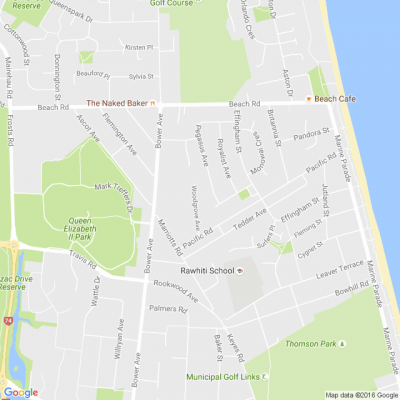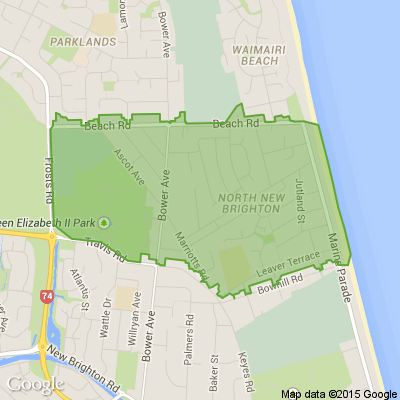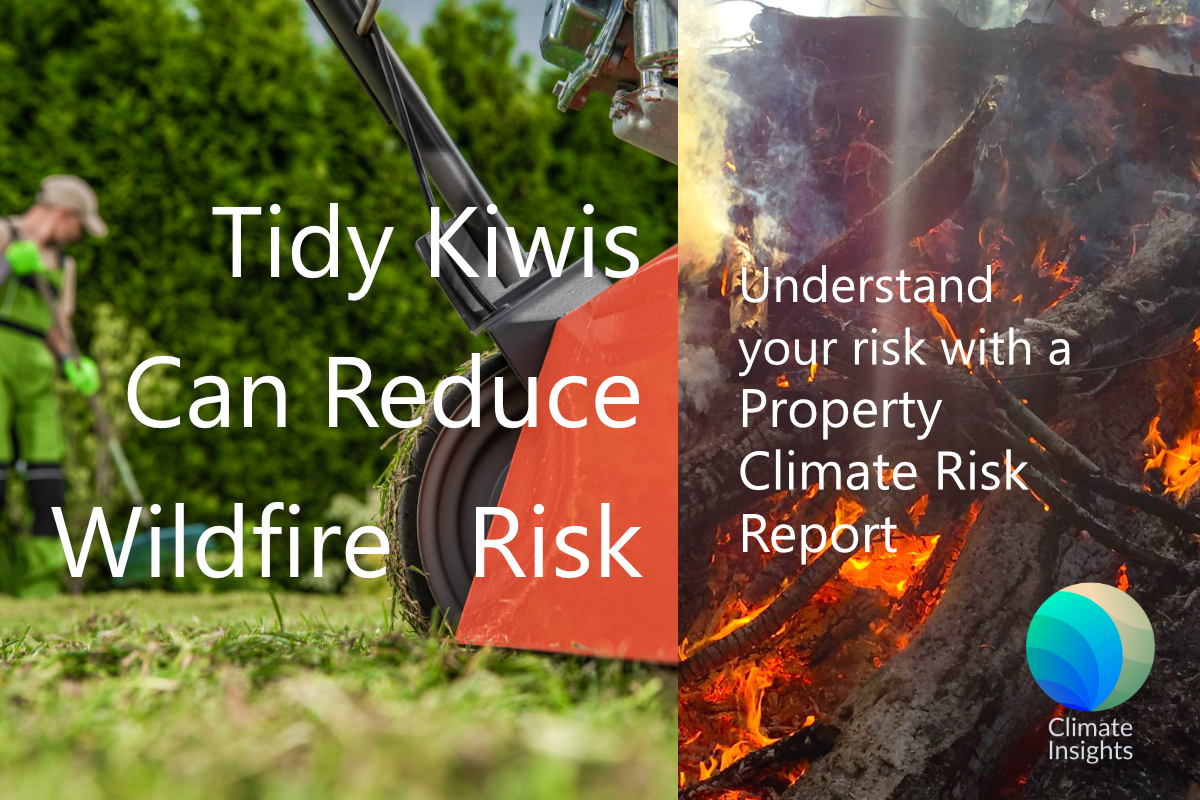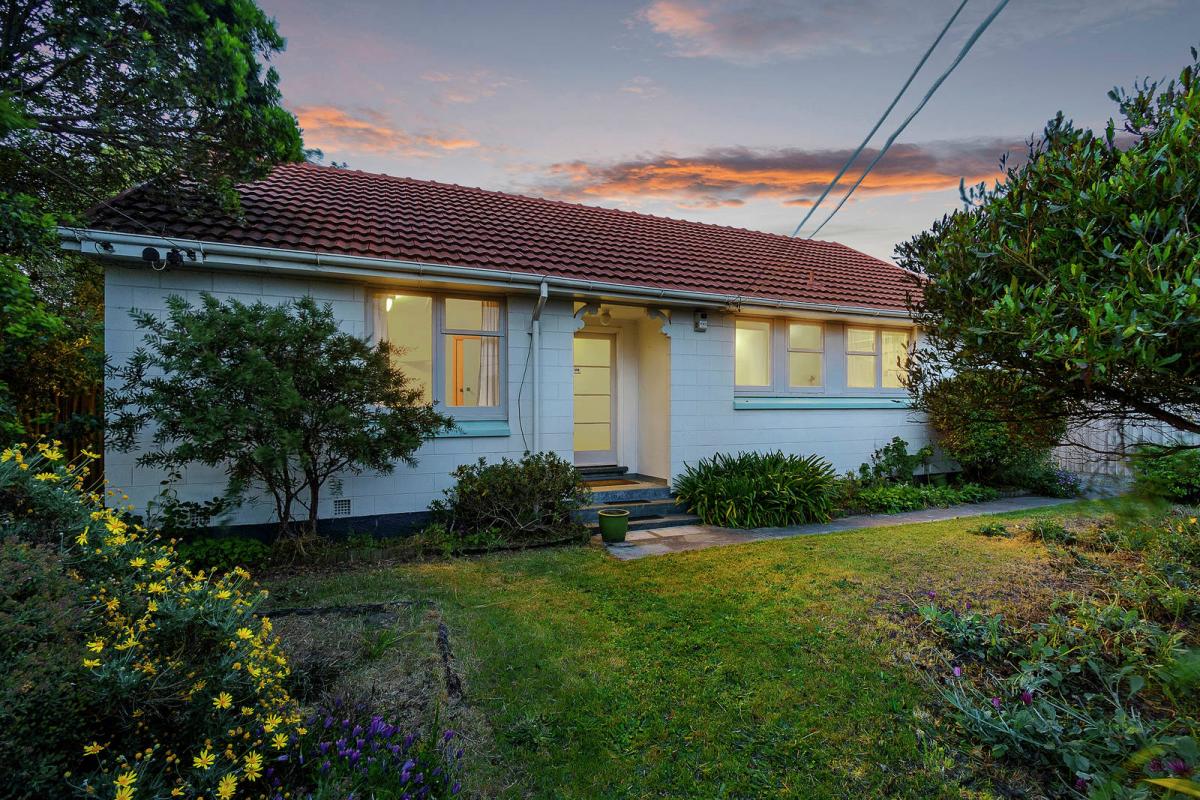
Know what’s happening
Access the private noticeboard for verified neighbours near you. Keep informed about any suspicious activity, send urgent updates to your neighbours when required and discuss emergency planning.
Get to know your neighbours
Browse the directory and start getting to know your neighbours. Don’t want to post to the whole neighbourhood? Send a private message.
Buy, sell and give away
Want to declutter your garage? Buy some used household items? Give away some garden stuff? Become a verified neighbour to browse and post items for sale. Trading is simple when everyone lives nearby.


Ryman’s Walk in Wednesdays
Ryman villages across the country are open every Wednesday in November.

Thank you for using Neighbourly
You may receive an email confirmation for any offer you selected. The associated companies will contact you directly to activate your requests.
Nicole Mathewson Reporter from The Press
By reporters Cate Broughton and Amber Allott:
------------------
Residents of an east Christchurch street are sick of getting hemmed in by floodwater every time it rains, after the latest deluge left small car owners stranded once again.
Canterbury was battered with heavy rain on Saturday and … View moreBy reporters Cate Broughton and Amber Allott:
------------------
Residents of an east Christchurch street are sick of getting hemmed in by floodwater every time it rains, after the latest deluge left small car owners stranded once again.
Canterbury was battered with heavy rain on Saturday and early Sunday, causing surface flooding and road closures, part of a weather system driven by the remnants of ex-cyclone Dovi.
Sam McDonnell, who lives on Newport St in Christchurch's Avondale, woke up on Sunday to a road that had disappeared under floodwaters.
At 7am, the water was about 40 centimetres deep at the end of his driveway, McDonnell said.
He had owned his property since November and the street had flooded six times since then, but other residents said it had been a problem since the Canterbury earthquakes more than a decade ago, he said.
Rubberneckers often drove through the flooding, which pushed water onto properties, he said.
Locals wanted the council to look at storm water infrastructure for the area, to find a permanent solution, McDonnell said.

Mei Leng Wong Reporter from NZ Gardener & Get Growing
It's not too late to grab these sensational plants for your green-fingered, houseplant-loving Valentine. Here's a quick guide to the hottest indoor plants for that special person in your life.

The Team from Addictive Eaters Anonymous - Christchurch
Monthly AEA Web Events
Held on the third Sunday of the month from 9.00 to 10.00am.
Free monthly online meeting on Zoom with three 10 minute speakers and followed by member sharing. Anyone can join from their phone, desktop, mobile and tablet devices. ALL WELCOME

The Team from NZ Compare
Happy Valentines Day from the team at NZ Compare!
Take the time today to enjoy the love that surrounds you. Pass it onto your friends, family, pets, maybe even a neighbour! Brighten someone's day.
Don't forget to show yourself some love too!

We all love a cheeky grin and a wave from our local grocer, or a toot from the delivery driver, or a coffee order that’s ready before we arrive. And especially over the last year, it’s been the small businesses in our communities that have almost made things seem ‘normal’.
… View moreWe all love a cheeky grin and a wave from our local grocer, or a toot from the delivery driver, or a coffee order that’s ready before we arrive. And especially over the last year, it’s been the small businesses in our communities that have almost made things seem ‘normal’.
Give your favourite local business owner the recognition they deserve by nominating them in the 2022 Prospa Local Business Hero awards.
Nominate now

Attention Waimakariri residents. Your weekday commute just got easier!
Metro’s weekday direct bus services from Kaiapoi and Rangiora to central Christchurch include four morning trips and five afternoon trips back to each town. The buses even have free wifi and USB changing ports.
Sit back … View moreAttention Waimakariri residents. Your weekday commute just got easier!
Metro’s weekday direct bus services from Kaiapoi and Rangiora to central Christchurch include four morning trips and five afternoon trips back to each town. The buses even have free wifi and USB changing ports.
Sit back and enjoy your non-stop commute while you take some time to clear those emails, make some calls, read a book, or just sit and let the mind wander. Keen to find out more? Visit metro.co.nz/traveltochch
Find out more

Bring 2 cans of food into your local Resene ColorShop and swap them for 1 Resene testpot (60-80ml).
Resene will then donate all the food brought in to The Salvation Army local foodbanks.
By adding a little more colour to your life you can also help those in need. When you bring in 2 cans of … View moreBring 2 cans of food into your local Resene ColorShop and swap them for 1 Resene testpot (60-80ml).
Resene will then donate all the food brought in to The Salvation Army local foodbanks.
By adding a little more colour to your life you can also help those in need. When you bring in 2 cans of food you'll save on your testpot purchase (save up to $5.90 on an 80ml testpot) while also helping provide disadvantaged Kiwis with food parcels when they need them most.
So start gathering up those cans and bring them into your local Resene owned ColorShop.
Find out more

The Team from Resene ColorShop Shirley
Less is best – plastic that is. So what better way to help the environment than to create your own fun, reusable calico shopping bag? Paint your own with Resene testpots.
Find out how to create your own.

The Team from NZ Compare
We’ve all spent a lot of time at home last year, so many of us are in the same boat when it comes to our high power bills! GULP!
More Kiwis are now working from home, if that's you then it's time to check if you’re on the right power plan. SWITCH, SAVE and SMILE this Summer!
… View moreWe’ve all spent a lot of time at home last year, so many of us are in the same boat when it comes to our high power bills! GULP!
More Kiwis are now working from home, if that's you then it's time to check if you’re on the right power plan. SWITCH, SAVE and SMILE this Summer!
Compare with our help and find the right power plan for your household! It’s easy as!
Visit Power Compare to get yourself a better deal. Our service is free, we’re Kiwis helping Kiwis compare what’s out there across Power, Broadband and Money.
COMPARE MY POWER!

Nicole Mathewson Reporter from The Press
From reporter Lee Kenny:
---------------------------
For the Christchurch residents living in a street blighted by bird poo starlings are a menace – but how do you deal with the flying pests?
According to New Zealand Birds Online, the common starling was introduced for insect control, but they … View moreFrom reporter Lee Kenny:
---------------------------
For the Christchurch residents living in a street blighted by bird poo starlings are a menace – but how do you deal with the flying pests?
According to New Zealand Birds Online, the common starling was introduced for insect control, but they are now found across Aotearoa and the Subantarctic Islands.
They nest in hollow trees, under house eaves and even in letter boxes. As well as creating a mess, they eat crops and make a noise, which some people find annoying.
There are a range of methods to discourage starlings, from the cheap to the costly.
Westport-based Maintrac Group sells a range of equipment for dealing with pests, like starlings.
These include the high-tech Bird-X, a $795 device that uses red and green laser beams to deter birds.
Deploying bird spikes is among the least expensive options. The stainless steel spikes can be adhered to surfaces, preventing birds from landing and therefore pooping on property below.
“A successful way to deter starlings is to prevent them from landing,” Maintrac Group's website says.
“Starlings need a lot of energy just to fly, so if they are prevented from landing near a food source they soon use up what energy they do have, and have to move off to other areas to feed. If one goes, they all go.”
Shiny holographic tape can also be applied to surfaces to discourage the birds from settling, while an artificial osprey hawk does a similar job.
Another option is a Carousel Gas Gun, which makes a loud bang and scares unwanted birds away.
The noise will be familiar to anyone who has spent time in the countryside, but the intermittent blasts might not be suitable for suburbia.
A less noisy option might be an ultrasonic bird and animal repellent, which emits a high-frequency sound to scare away flying pests.
Despite the thousands of starlings that descend on Dudley St, Richmond, each summer, one pest expert said they are not a common problem in Christchurch.
“The bird-work we do is usually involving pigeons,” Gary Hendrikse, director of Elite Pest Control, said.
“I don't think I've ever had a call to get rid of starlings.
“The only other nuisance birds are ones that nest in people's ceilings, that's often to do with preventing access.”
Other methods for discouraging starlings include removing nests and food sources, and patching up holes to areas that could be used as a nesting site.
Nicole Mathewson Reporter from The Press
From reporter Cate Broughton:
------------------------------
Older and vulnerable people are being encouraged to “hunker down” in their homes during the peak of the Omicron virus, by some health experts – but others say this isn’t necessary.
New Zealand epidemiologist Professor Tony … View moreFrom reporter Cate Broughton:
------------------------------
Older and vulnerable people are being encouraged to “hunker down” in their homes during the peak of the Omicron virus, by some health experts – but others say this isn’t necessary.
New Zealand epidemiologist Professor Tony Blakely is based at Melbourne University and says he encouraged his nearly 80-year-old parents – who live in Rotorua – to stay at home when Omicron cases climb and the virus becomes endemic.
However, Cancer Society medical director Kate Gregory said there was not enough evidence to support giving this advice to cancer patients.
On Sunday, Prime Minister Jacinda Ardern confirmed there was community transmission of the Omicron variant in New Zealand.
The Ministry of Health on Monday reported confirmed Omicron cases in the Nelson-Tasman region, Auckland and Palmerston North.
Blakely said he talked to his parents about continuing their usual activities while using a N95 mask, but “hunkering down” when cases climbed.
“You probably do that for another 10 days until case numbers start to go up in Rotorua, and then you really hunker down. So that’s what we’ve talked about.”
Blakely said “the maths of an epidemic” meant up to half of the population was likely to get infected with Omicron.
“The trick is to make sure the people who get infected are the young ones. So you accept that. You accept there will be hospitalisations associated with that.
But to minimise the hospitalisations, the mortality and morbidity – a bit like trench warfare – you send over the young ones, and you hunker down the oldies and those with co-morbidities.”
Blakely said his parents, who are double vaccinated and have had their booster, had already decided to stay at home when cases climbed.
But he said it was hard to say how long this period should last.
New Zealand’s traffic light setting of red – the highest level of restrictions under the traffic light system –would help to slow the spread of Omicron, and protect essential services from being overwhelmed, but this would also mean the peak of the virus would last longer, Blakely said.
“Here’s the deep irony, the better New Zealanders are at flattening the curve, the longer the hunker down will be.”
Blakely acknowledged prolonged periods of isolation for the elderly and vulnerable could have significant mental health impacts.
In Australia, Omicron has taken a huge toll on the aged-care sector with hundreds of outbreaks in aged care homes. But some families have said the lockdowns were overly cautious and too hard on the elderly residents, most of whom were fully vaccinated.
Wellington GP and Royal New Zealand College of General Practice (RNZCGPs) medical director Bryan Betty said the Australian experience of Omicron showed it could peak for as long as four to six weeks.
Betty said most people – including fit older people – would experience a mild to moderate illness, if infected.
“However, the caveat on this is ... we know the biggest risk factor for a poorer outcome from Covid is age, the elderly population in particular are vulnerable to a poorer outcome with Covid.”
Betty said it would be good for older people to consider staying home, with some support from friends and family, “as the case numbers rise” in the community.
Cancer Society medical director Kate Gregory said there was not enough evidence to date to support advising patients to stay home, but this could change “if we see much higher numbers”.
“If, in a week’s time we are seeing thousands and thousands of cases we may be advising people differently. I think the reassuring thing we’ve seen is that Omicron doesn’t seem to cause such severe disease and we know the vaccine provides very good protection.”
Gregory said for cancer patients the best defence is to be vaccinated and for the people in their households to be vaccinated.”
She said in her experience a “vast majority” of cancer patients had received two doses of Covid-19 vaccine, many with a third primary dose.
“It’s a frightening time, and especially for those who are more vulnerable.
"I think as long as people have the vaccine, wear the mask, do the hand-washing and get tested promptly, I think that’s probably fine. At the moment, that’s the advice we’re giving our patients.”
31 replies (Members only)
Our February Seniors newsletter is out now. In this issue we announce our Age friendly fund successful recipients, shine a light on the those nominated for the New Years Honours for Services to Seniors and much more. Check it out here: mailchi.mp...
Ashleigh from Neighbourly.co.nz
Kia ora Aotearoa. Stuff has just finished their annual Summer Snaps competition and we’re thrilled to announce that you'll be the judge of the People and Communities photograph category.
The entries in this category have been shortlisted and we now have five brilliantly captured … View moreKia ora Aotearoa. Stuff has just finished their annual Summer Snaps competition and we’re thrilled to announce that you'll be the judge of the People and Communities photograph category.
The entries in this category have been shortlisted and we now have five brilliantly captured photographs to battle it out. There's a camera up for grabs for our talented photographers, and it's up to you to choose who takes the crown...and the Canon EOS!
Cast your vote in the poll below before 12pm, 11 February.
Peri-urban areas can be described as the landscape interface between town and country or the rural-urban transition zone where urban and rural areas mix.
The probability of wildfire is driven by the amount and dryness of fuel, ambient weather and ignitions. Dry weather exacerbates wildfire risk… View morePeri-urban areas can be described as the landscape interface between town and country or the rural-urban transition zone where urban and rural areas mix.
The probability of wildfire is driven by the amount and dryness of fuel, ambient weather and ignitions. Dry weather exacerbates wildfire risk in this zone and could significantly impact your property! With one of New Zealand’s hottest and driest summers, discover your property’s fire risk and what you can do to reduce it.
We can produce personalised reports for any house on the planet!
Click here to get your property report: https://property-climate-risk-report.co.nz/
Know more

Marcos from Wainoni
NZ Government Paid US$25.50, Israel was reported to have spent US$23.50 per dose. The United States and the European Union both spent less than US$20 per dose for the initial rollout but are now paying around US$24.
NZ Government refuse to inform the cost but the prices that numerous other … View moreNZ Government Paid US$25.50, Israel was reported to have spent US$23.50 per dose. The United States and the European Union both spent less than US$20 per dose for the initial rollout but are now paying around US$24.
NZ Government refuse to inform the cost but the prices that numerous other countries paid for their vaccines are publicly available and there is no evidence that these countries experienced any retribution as a result of the release.
www.msn.com...
25 replies (Members only)
 Loading…
Loading…
Are you sure? Deleting this message permanently removes it from the Neighbourly website.
 Loading…
Loading…

 Asking Price $849,000
Asking Price $849,000



 Marketed by Jacinta Le Lievre
Marketed by Jacinta Le Lievre

 $569,000
$569,000



 Marketed by Vicki Tahau Paton
Marketed by Vicki Tahau Paton





 Marketed by Allen Gunn
Marketed by Allen Gunn





 Marketed by Anna Webber
Marketed by Anna Webber

 Auction: Thursday 28th November (UBF)
Auction: Thursday 28th November (UBF)



 Marketed by Pip Sutton
Marketed by Pip Sutton

 Price Upon Application
Price Upon Application



 Marketed by Barry Ellis
Marketed by Barry Ellis

 Auction
Auction




 1450000
1450000



 Marketed by Jan Morley
Marketed by Jan Morley
© Neighbourly 2024
